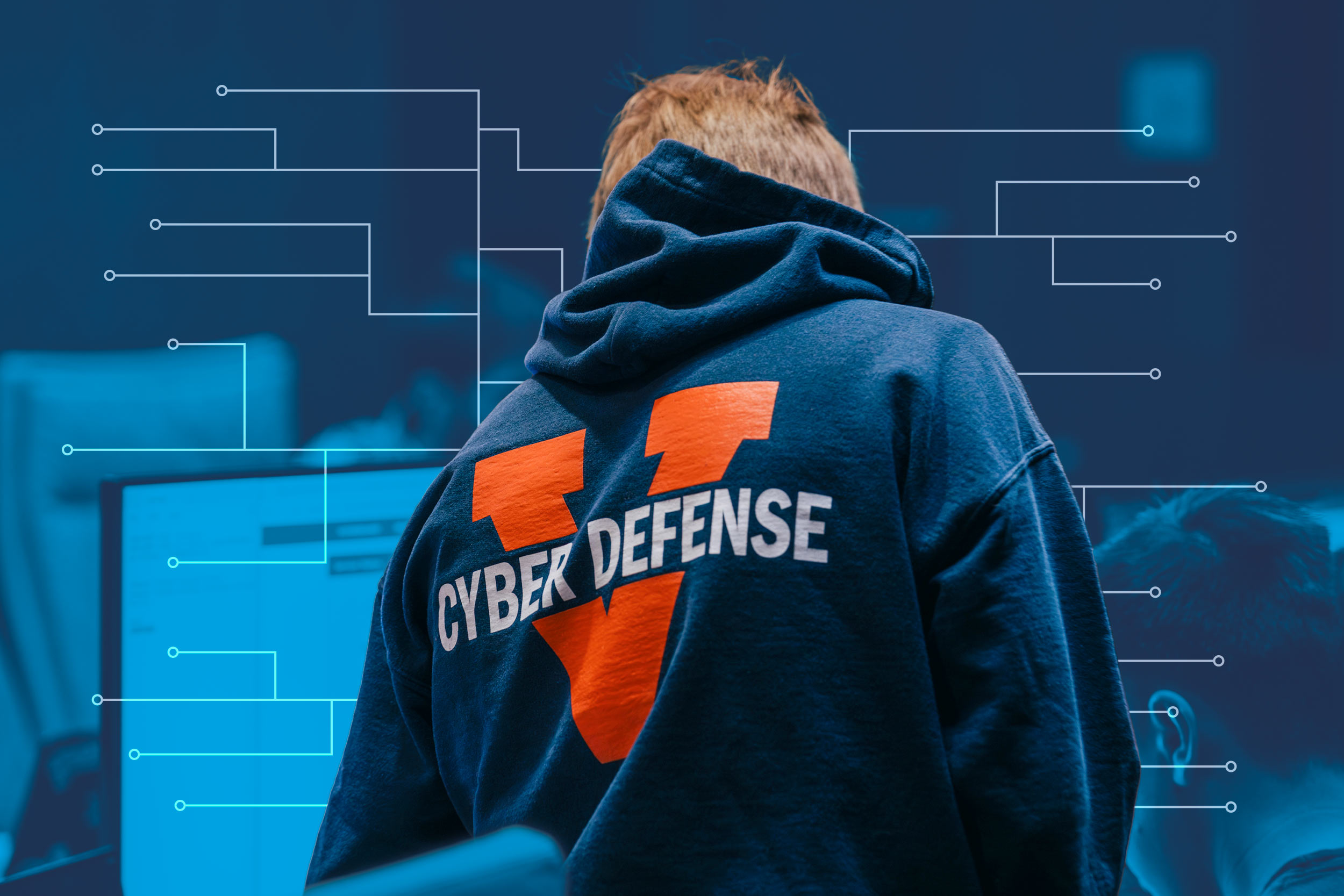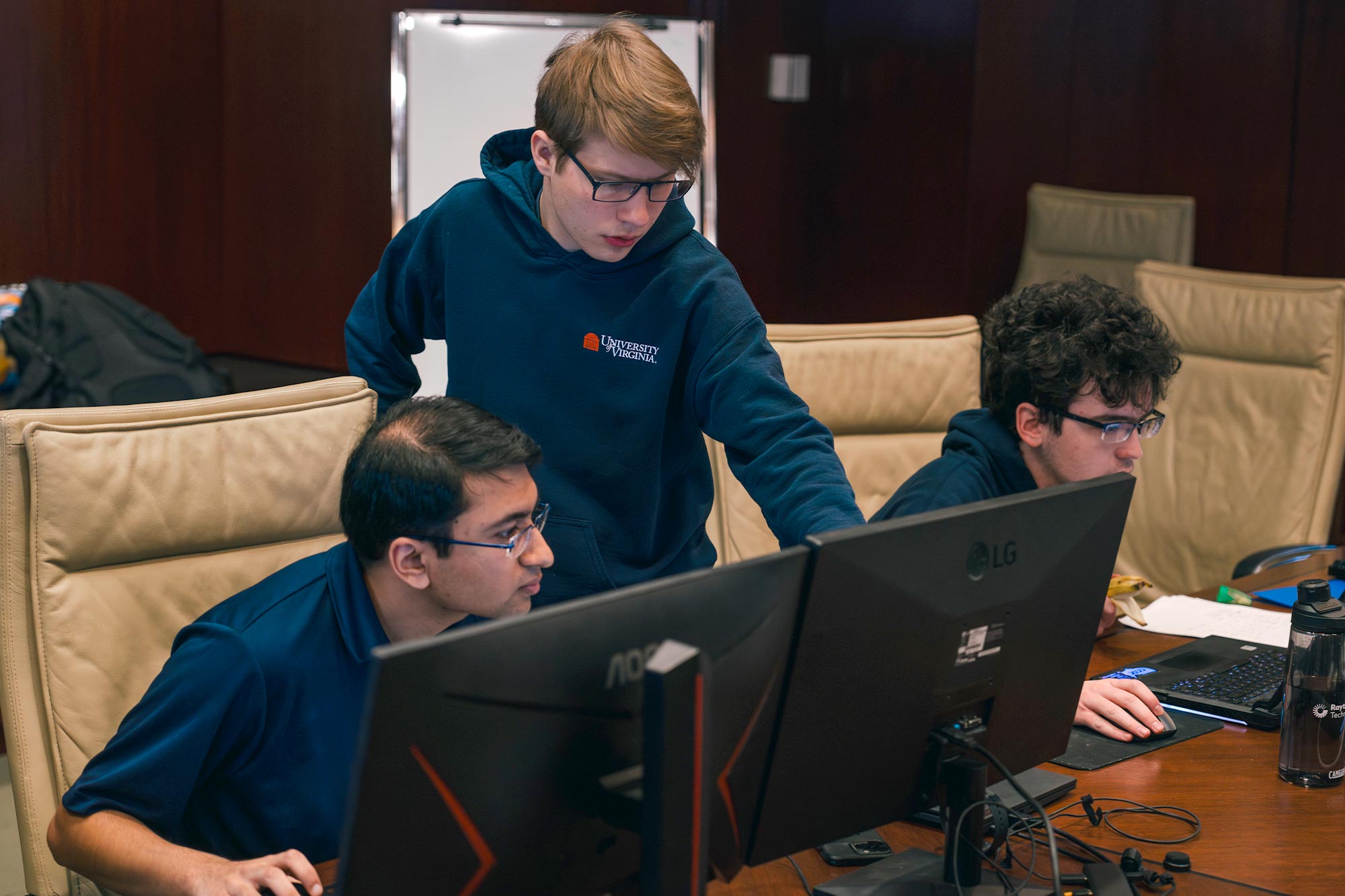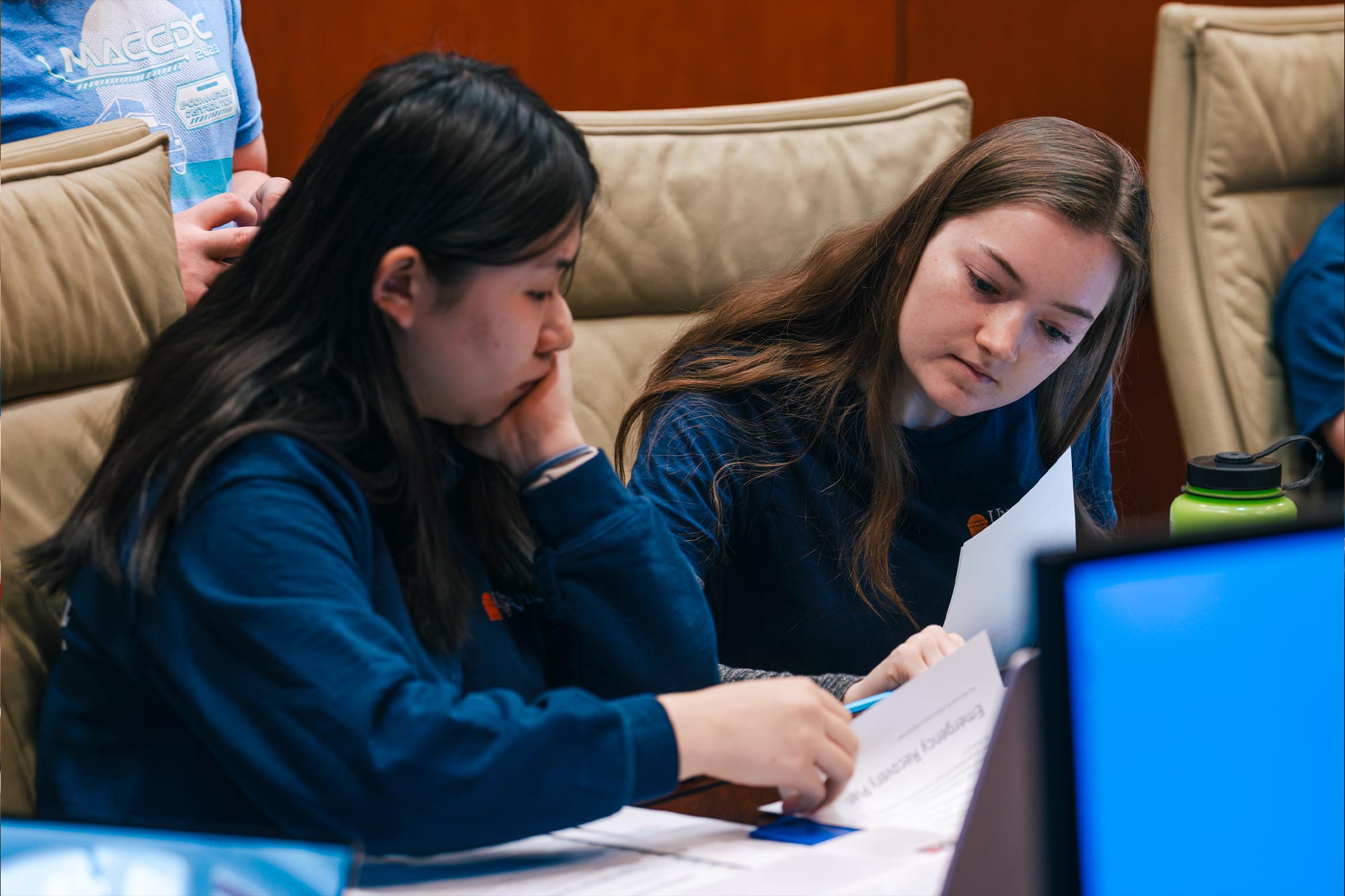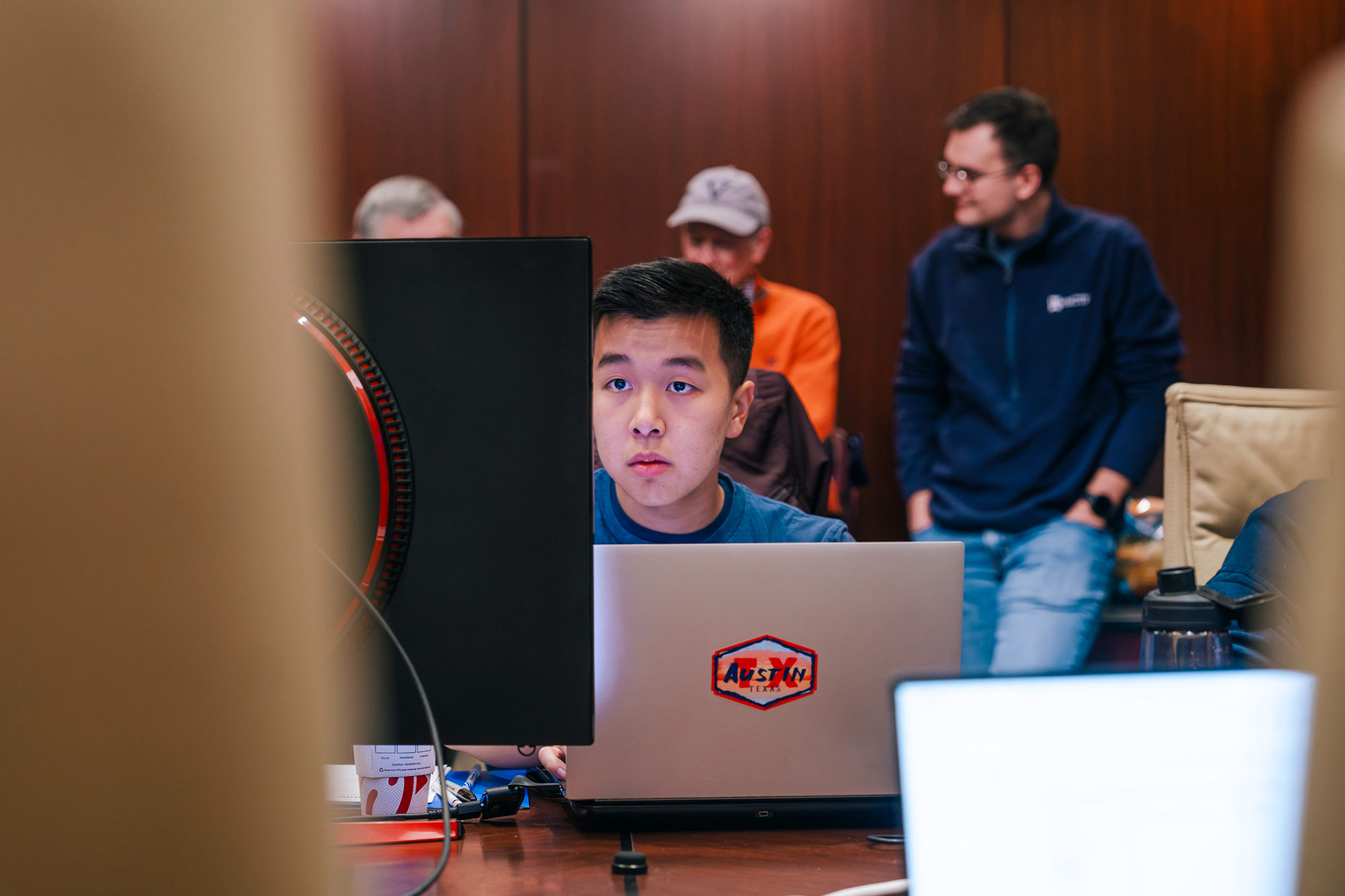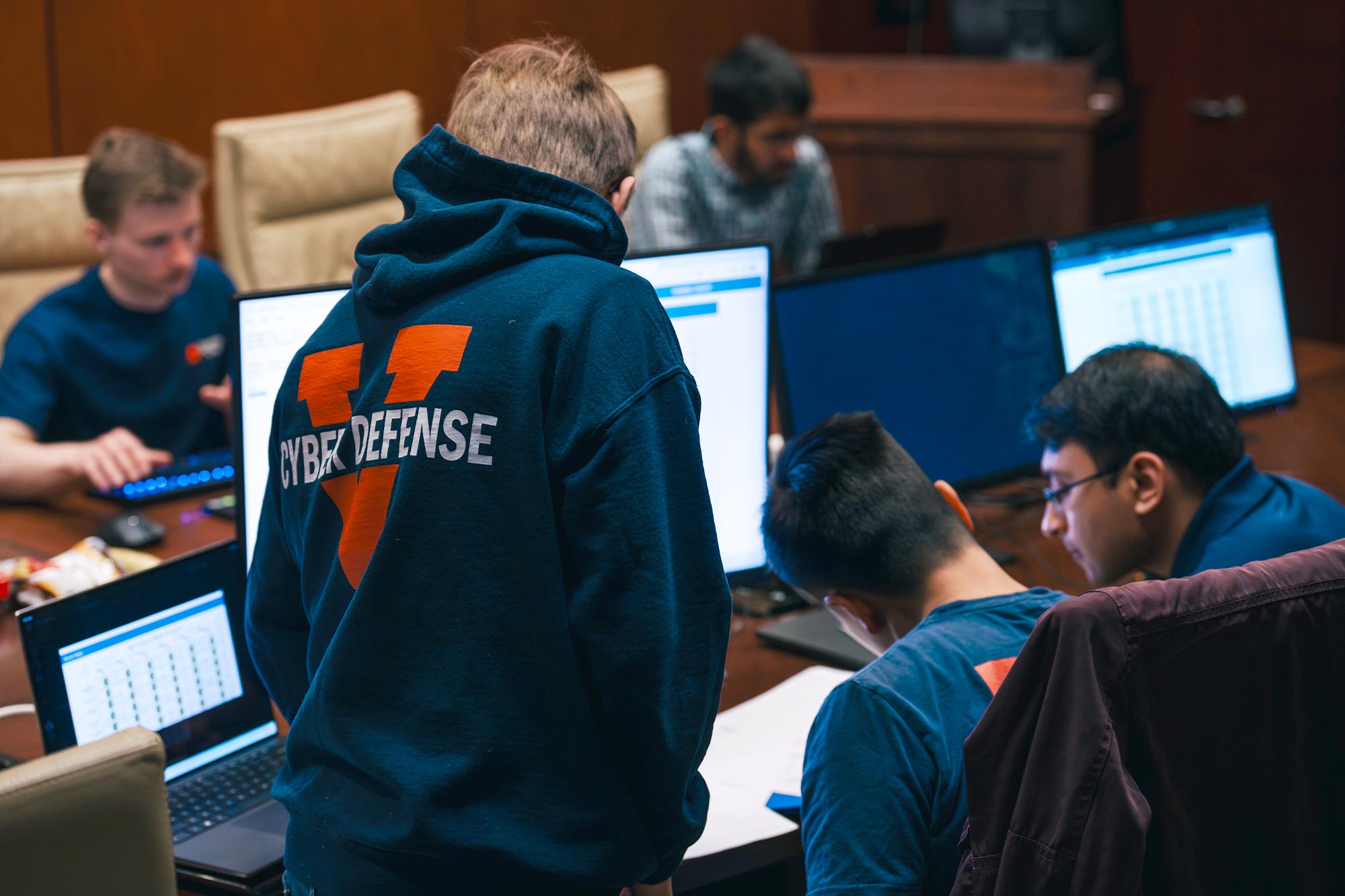It was all defense. The Blue Team could not pursue or attack the hackers, only put up barriers and take action to thwart the Red Team, a volunteer group of industry professionals simulating a real-world cyberattack.
UVA alumnus Roman Bohuk, a member of the team that won the national cyberdefense competition on its first try in 2018, acted as a judge. He is the chief executive officer and co-founder of MetaCTF, a company created by former UVA students that teaches cybersecurity skills to high school and college students.
Jack Davidson, a professor of computer science and director of the Cyber Defense Program of Study in the School of Engineering and Applied Science, stood off to the side, watching as the students collaborated to repair system flaws.
“The students have good communication skills with each other and that is key,” he explained.
At points, the room fell silent except for the chatter of keyboards. At other times, the air was filled with crosstalk and geek-speak as people paired off to work on problems.
The team was fueled by granola bars, Bodo’s Bagels, Doritos, Hershey Kisses and Lifesavers, washed down with water and Mountain Dew. Alumnus Emil Baggs, a team adviser and network engineer for IT services provider Richweb, brought doughnuts to encourage competitors. A large-screen monitor showed the status of the other teams in the competition.
“This is a sprint, not a marathon, so don’t be cocky,” team captain Chris Marotta said in his pre-game pep talk. Pointing to a large monitor screen, he told them to pay no attention to the other teams. “The only one that matters up there is Team Six” – UVA’s team.
After correcting flaws in their “company’s” systems, the team detected some Red Team activity, but less than they expected.
“This happens sometimes in these competitions because they are constructed to simulate a real-world attack. If we are quick enough, in some rare cases we can adequately secure our network from the beginning to the point where the Red Team is unable to get in,” Marotta said. “The mid-Atlantic region has a lot of very strong competitive cyberteams and we commonly find ourselves having to give it all we got just to maintain our competitive edge.”
Lulu Han, a fourth-year computer science major on the Windows group in the defense team, was drawn to cybersecurity because she realized how much she did not know.
“Each day, new techniques and strategies are being used to compromise systems, steal data and damage critical infrastructure,” Han said. “It’s interesting to think that I’ve been using Windows computers all of my life, yet I never really knew how anything worked in the background.”
Team member Shreyas Mayya, a second-year computer science major from Lorton, said he learned he has the ability to stay calm and focused under sustained pressure.
“I knew attackers had to get creative in order to get into modern systems, but it still astonishes me just how ingenious many of today’s exploits really are,” he said. “The state of the art in cybersecurity is defined by diligent research and deliberate execution on both attack and defense.”
